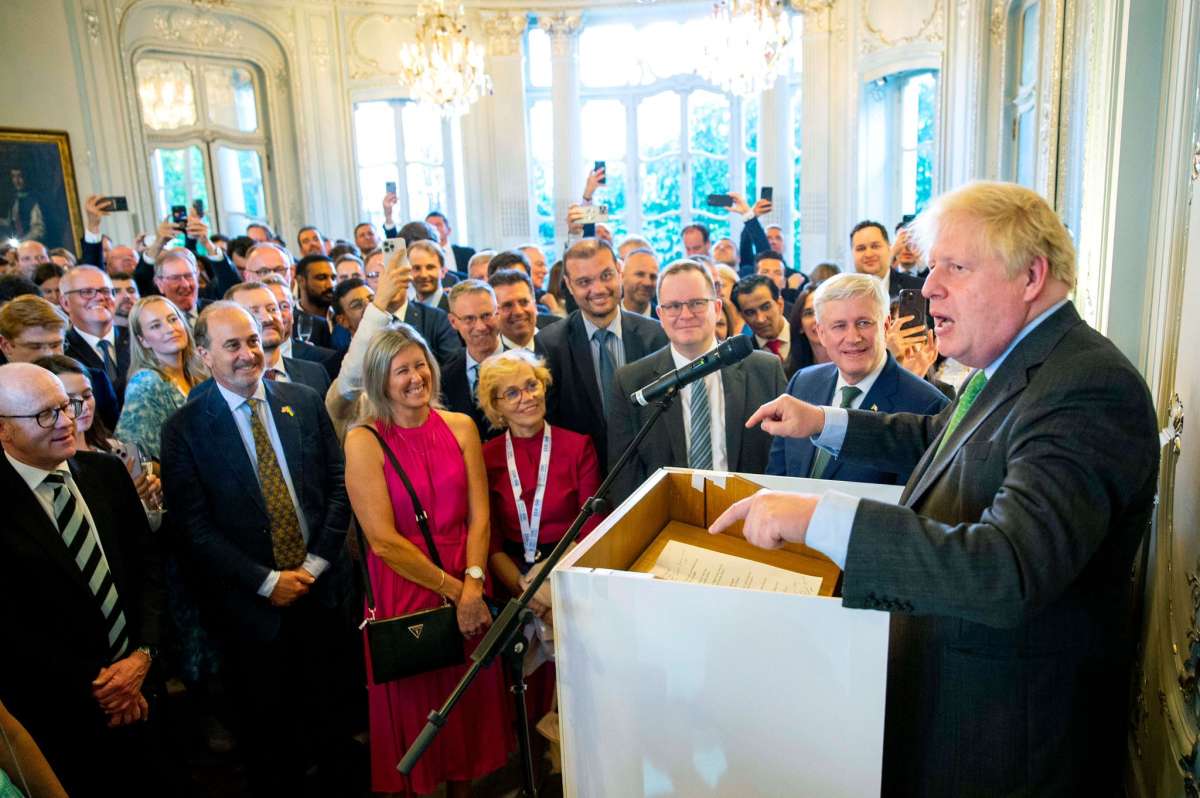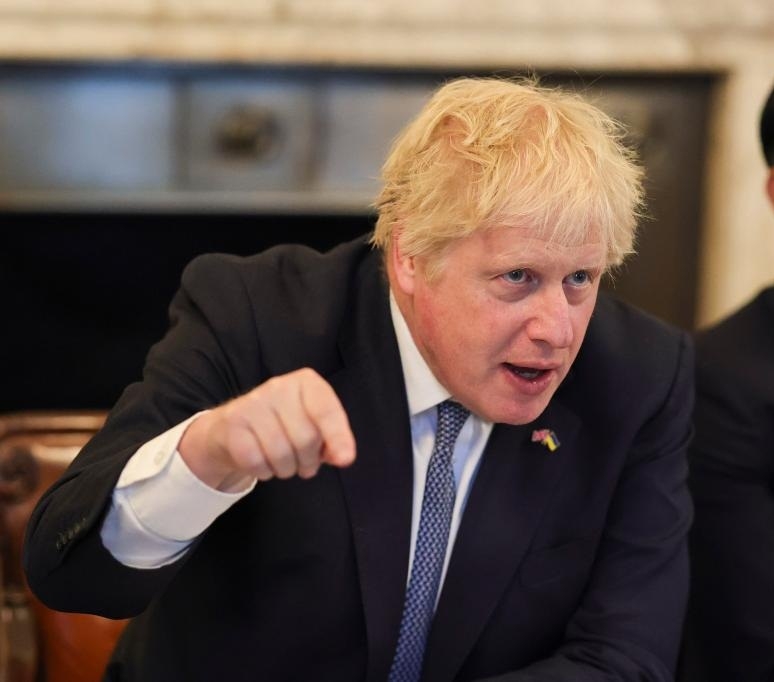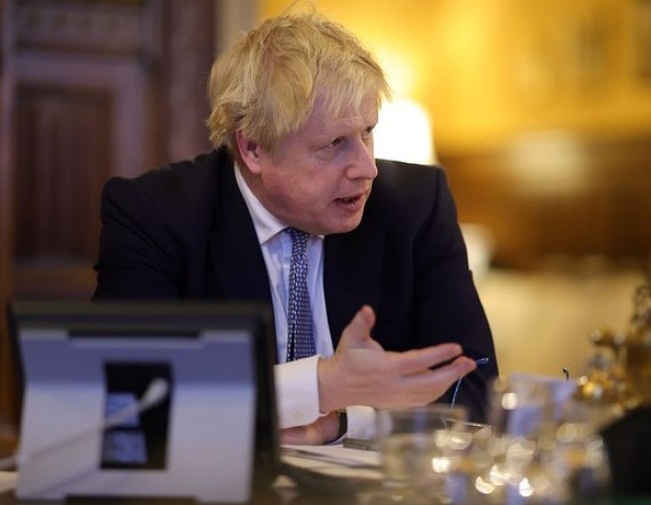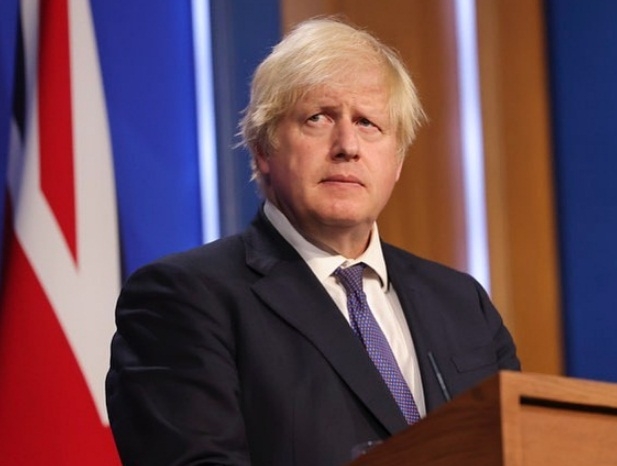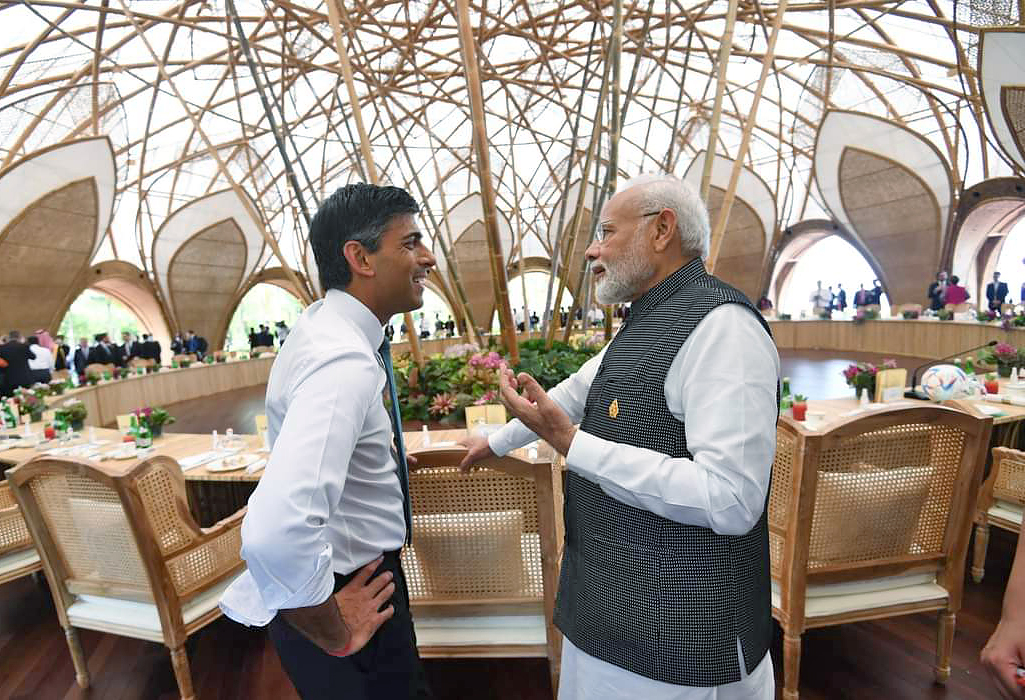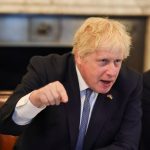The House of Commons voted 354 to seven on Monday to endorse the privileges committee’s report…reports Asian Lite News
Legislators in the United Kingdom have voted to approve a report that recommended sanctioning former Prime Minister Boris Johnson for lying to parliament about boozy, law-breaking parties held during the Covid-19 pandemic.
The House of Commons voted 354 to seven on Monday to endorse the privileges committee’s report, which concluded that the former leader should have his parliamentary pass revoked. Had he not already quit, it would have also recommended a 90-day suspension from parliament.
Johnson abruptly resigned from parliament 10 days ago after seeing an advance copy of the report, calling the inquiry a “witch hunt”.
“It is important to show the public that there is not one rule for them and another for us,” said Conservative Party politician Theresa May, Johnson’s predecessor as prime minister.
Opening the five-hour debate, House of Commons Leader Penny Mordaunt urged legislators to “do what they think is right”. Mordaunt, a Conservative like Johnson, said she would vote to endorse the report by the Commons Privileges Committee.
“This matters because the integrity of our institutions matter. The respect and trust afforded to them matters,” said Mordaunt. “This has real-world consequences for the accountability of members of Parliament to each other and the members of the public they represent.”
A handful of Johnson allies spoke up to defend the former leader. MP Lia Nici said, “I cannot see where the evidence is where Boris Johnson misled Parliament knowingly, intentionally or recklessly”.
Many Conservative MPs were absent from the debate – including Prime Minister Rishi Sunak. Wary of riling Johnson’s remaining supporters, he stayed away.
Max Blain, Sunak’s spokesman, said the prime minister had “a number of commitments,” including a meeting with Sweden’s leader.
Johnson, who turned 59 on Monday, was not there either. He stepped down as prime minister in September 2022 but remained an MP until June 9, when he quit after receiving notice of the Privileges Committee’s findings.
Monday’s debate was the latest aftershock from the “Partygate” scandal over gatherings in the prime minister’s Downing Street headquarters and other government buildings in 2020 and 2021.
The revelation that political staffers held birthday gatherings, garden parties, and “wine time Fridays” during the pandemic sparked anger among Britons who had followed rules imposed to curb the spread of the coronavirus, unable to visit friends and family – or even say goodbye to dying relatives in hospitals.
Labour Party MP Chris Bryant said “there is visceral anger” among voters about Partygate.
Memories were revived this week by the Sunday Mirror newspaper’s publication of video showing staffers drinking and dancing at an event at Conservative Party headquarters in December 2020, when people from different households were banned from mixing indoors.
The Privileges Committee of MPs, which has a Conservative majority, was asked to investigate whether Mr Johnson had misled MPs over what he knew about parties held in Downing Street during Covid lockdowns – dubbed the Partygate scandal.
Its report concluded that Johnson made multiple deliberately misleading statements to Parliament about events at No 10. Ahead of the report’s publication, Johnson announced he was quitting as an MP, branding the committee a “kangaroo court”.
The report found Johnson had committed further “contempts” of Parliament by attacking the committee, increasing the severity of the recommended sanction.
The committee subsequently recommended a 90-day suspension for Johnson – a long ban by recent standards – as well as denying him the parliamentary pass, which he would normally be entitled to as a former MP. If he had still been an MP, the suspension could have triggered a by-election in his constituency.
Speaking during a Commons debate ahead of the vote, Mrs May said backing the report would be “a small but important step in restoring people’s trust” in Parliament.
It was “important to show the public that there is not one rule for them and another for us”, she said.
May urged her fellow MPs to vote in support of the report “to uphold standards in public life, to show that we all recognise the responsibility we have to the people we serve, and to help to restore faith in our parliamentary democracy”.
During the debate, supporters of Johnson spoke out against the report’s findings. Nici, who was Johnson’s parliamentary private secretary, told MPs she could not see any evidence he had knowingly misled Parliament.
She questioned the impartiality of the committee and suggested the process was “political opportunism” for people who did not like Johnson.
Former minister Sir Jacob, who was knighted by Johnson in his resignation honours, described the proposed 90-day suspension as “a vindictive sanction”. In response to accusations some Johnson allies had attempted to discredit the committee’s work, Rees-Mogg said it was “absolutely legitimate to criticise the conduct of a committee” and its members.
However, the committee’s chairwoman, Labour MP Harriet Harman, said its members had to “withstand a campaign of threats, intimidation, and harassment designed to challenge the legitimacy of the inquiry”.
